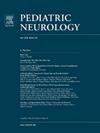Caregiving Burden and Quality of Life Among Parents of Individuals With Angelman Syndrome: Gender Differences and the Impact of Financial Well-Being
IF 2.1
3区 医学
Q2 CLINICAL NEUROLOGY
引用次数: 0
Abstract
Background
A person with Angelman syndrome (AS), a rare neurogenetic condition that significantly affects health and daily functioning, needs lifetime specialized care. Consequently, parents of individuals with AS experience decreased quality of life, high levels of parental stress and burden, and severe financial strain. This study analyses the experiences of Polish parents of persons with AS. Gender differences between mothers and fathers are also reported, and the association between financial well-being, caregiving burden, and quality of life is evaluated.
Methods
A self-administered, anonymous, computer-assisted online survey on parents’ caregiving experiences was conducted among 119 parents associated with the Association of Families with Angelman Syndrome and FAST Poland-Foundation for Angelman Syndrome Therapeutics between March and August 2024.
Results
Although both mothers and fathers of those with AS experience parental strain resulting from caregiving, decreased quality of life, and financial well-being, mothers experienced higher levels of caregiving burden (P = 0.004). It was also observed that the physical health of mothers and parents of children with delayed diagnoses was more affected by the caregiving. Financial well-being was the only factor significantly associated with both decreased quality of life in all domains and increased levels of caregiver burden.
Conclusions
To improve the quality of life of parents of those with AS, financial assistance, psychological counseling, emotional support, and respite care programs are needed. Simultaneously, although such interventions should include gender differences, they should focus on more burdened mothers. Financial assistance is the most required resource that may enhance parents’ life satisfaction and health-related quality of life.
天使综合症患者父母的照顾负担和生活质量:性别差异和经济福利的影响
安琪曼综合征(AS)是一种罕见的神经遗传疾病,严重影响健康和日常功能,需要终身专业护理。因此,AS患者的父母会经历生活质量下降、父母压力和负担加重以及严重的经济压力。本研究分析了波兰亚斯伯格症患者父母的经验。还报告了母亲和父亲之间的性别差异,并评估了经济状况、照顾负担和生活质量之间的关系。方法于2024年3月至8月对119名Angelman综合征家庭协会和FAST波兰Angelman综合征治疗基金会相关家长进行自我管理、匿名、计算机辅助的在线调查。结果AS患儿的父母均因照顾子女、生活质量下降和经济状况下降而感到父母压力,但母亲的照顾负担较高(P = 0.004)。还观察到,延迟诊断儿童的母亲和父母的身体健康受到照顾的影响更大。经济状况是唯一与所有领域生活质量下降和照顾者负担增加显著相关的因素。结论为提高AS患儿家长的生活质量,需要经济援助、心理辅导、情感支持和暂托项目。同时,虽然这种干预措施应包括性别差异,但应侧重于负担较重的母亲。经济援助是最需要的资源,可以提高父母的生活满意度和与健康有关的生活质量。
本文章由计算机程序翻译,如有差异,请以英文原文为准。
求助全文
约1分钟内获得全文
求助全文
来源期刊

Pediatric neurology
医学-临床神经学
CiteScore
4.80
自引率
2.60%
发文量
176
审稿时长
78 days
期刊介绍:
Pediatric Neurology publishes timely peer-reviewed clinical and research articles covering all aspects of the developing nervous system.
Pediatric Neurology features up-to-the-minute publication of the latest advances in the diagnosis, management, and treatment of pediatric neurologic disorders. The journal''s editor, E. Steve Roach, in conjunction with the team of Associate Editors, heads an internationally recognized editorial board, ensuring the most authoritative and extensive coverage of the field. Among the topics covered are: epilepsy, mitochondrial diseases, congenital malformations, chromosomopathies, peripheral neuropathies, perinatal and childhood stroke, cerebral palsy, as well as other diseases affecting the developing nervous system.
 求助内容:
求助内容: 应助结果提醒方式:
应助结果提醒方式:


